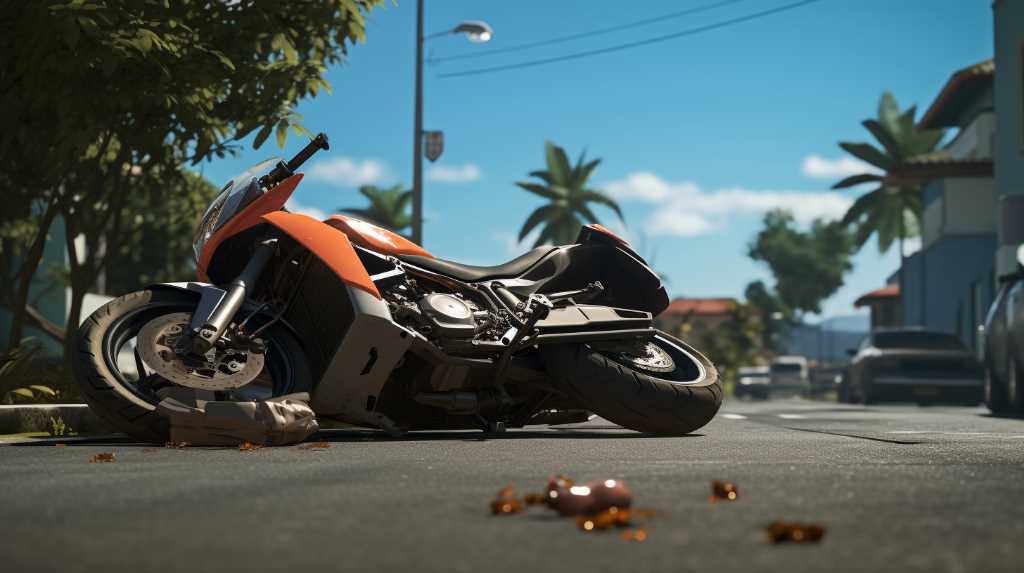
Even small motorcycle crashes can leave you wondering if you need to report them to the police or your insurance company. It’s important to figure out if you have to report these incidents because it follows the law and helps you avoid problems later on that could come from a minor crash you thought wasn’t a big deal.
Depending on where the accident happened and what exactly happened, the rules can be different. It’s also key to know what to do right after a small motorcycle crash to protect yourself legally and with your insurance.
Here, we’ll talk about what you need to think about and do if you ever find yourself in a minor motorcycle accident.
Understanding Legal Obligations
Motorbike riders need to know the rules about what to do after an accident. If someone is hurt, dies, or there’s a lot of damage to property, you often have to tell the police, especially if the damage costs more than a certain amount.
This isn’t just a formality; it helps keep track of safety data, helps with insurance claims, and might even cause changes to make roads safer. So, it’s important to understand how serious an accident is, not just by what you see, but by what the law says about when to report it.
These rules can be different in each place, so it’s smart to learn about them where you live. If you don’t report an accident when you should, you could get fined or even lose your license, which shows just how important it is to know and follow these steps after an accident.
Assessing Accident Severity
Evaluating how serious a motorcycle crash is helps you decide if you need to tell the police. When looking at the accident, start with how much the vehicle is damaged. Small issues, like scratches or little dents, usually don’t need to be reported. But if the motorcycle or something else gets damaged in a way that could be unsafe or affect who is responsible, you’ll probably have to make a report.
It’s also important to check how hurt everyone is. Sometimes, injuries don’t seem bad at first but get worse later, so you should keep that in mind. There are rules that say when you have to report an accident, based on how bad the damage or injuries are. Following these rules is a key part of what to do after an accident.
Insurance Implications
It’s really important to understand how a motorcycle accident, no matter how small, can affect your insurance costs and coverage. Insurance companies usually need you to tell them if something happens that might lead to a claim. If you don’t report even a small accident, you could break the terms of your policy. This could mean your insurance won’t cover you for any future incidents.
When it comes to setting prices, insurance companies look at your accident history to figure out how much of a risk you are. If you’ve had accidents before, they might see you as a higher risk and raise your rates to cover possible future losses. So, you need to think carefully about whether to report an accident. You have to weigh the hassle of reporting it now against the possibility of facing higher insurance costs later on.
Long-Term Consequences
If you don’t report even a small motorcycle crash, you could end up with serious legal and money problems later on. When there’s no official record because you didn’t report it, it’s harder to prove later that your stuff was damaged or you got hurt.
Without a report right away, it’s tough to show what really happened, and people might not believe you if you try to make a legal claim later. Some places have rules about reporting accidents, and if you don’t follow them, you could get fined.
Also, if you don’t report an accident, it might look like you’re trying to get out of taking the blame, which could make your insurance or future legal issues more complicated. So, it’s important to think about the long-term effects before deciding not to report an accident.
Reporting Process Steps
If you get into a small motorcycle crash, what should you do to follow the law and keep a record of what happened?
Start by checking the situation right away. Everyone involved needs to share their contact and insurance details. Call the police if necessary, especially if there are injuries, the road is blocked, or there’s a lot of damage.
Next, you have to let the state DMV or traffic office know about the accident. You usually have a certain number of days to do this, and it depends on where you are. Make sure your report includes the date, time, place, who was involved, and exactly what happened. If you don’t report the accident the right way, you could face legal trouble and it could hurt your chances in any future insurance claims or court cases.
Conclusion
Whether you need to report a small motorcycle accident depends on what the law says, how bad the accident was, what your insurance needs, and what could happen later because of the accident. It’s important to follow the rules where you live to avoid any legal issues.
Also, looking at the accident closely helps avoid problems with your insurance. It’s really important for motorcycle riders to know how to report an accident. This knowledge can make a big difference in money and legal matters for everyone involved.